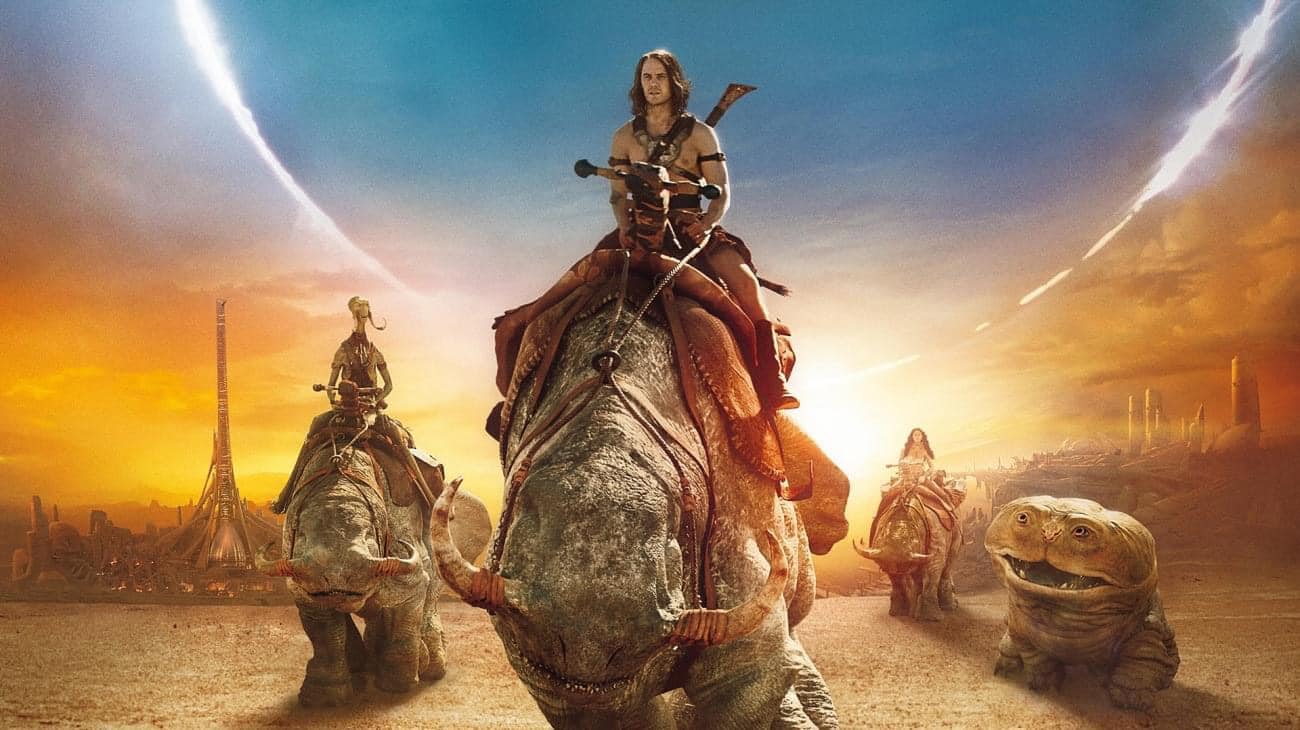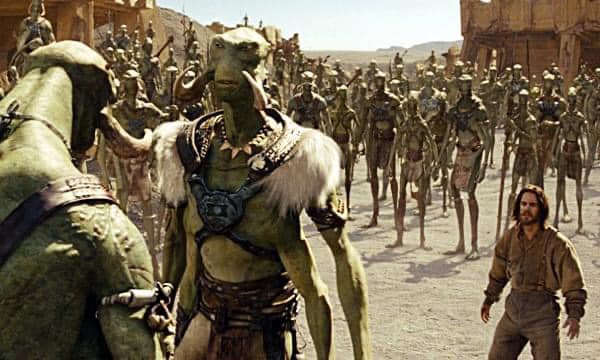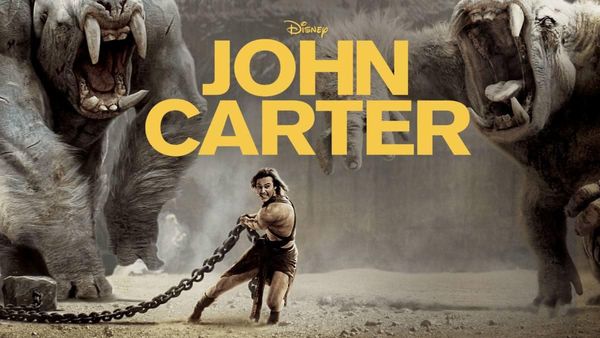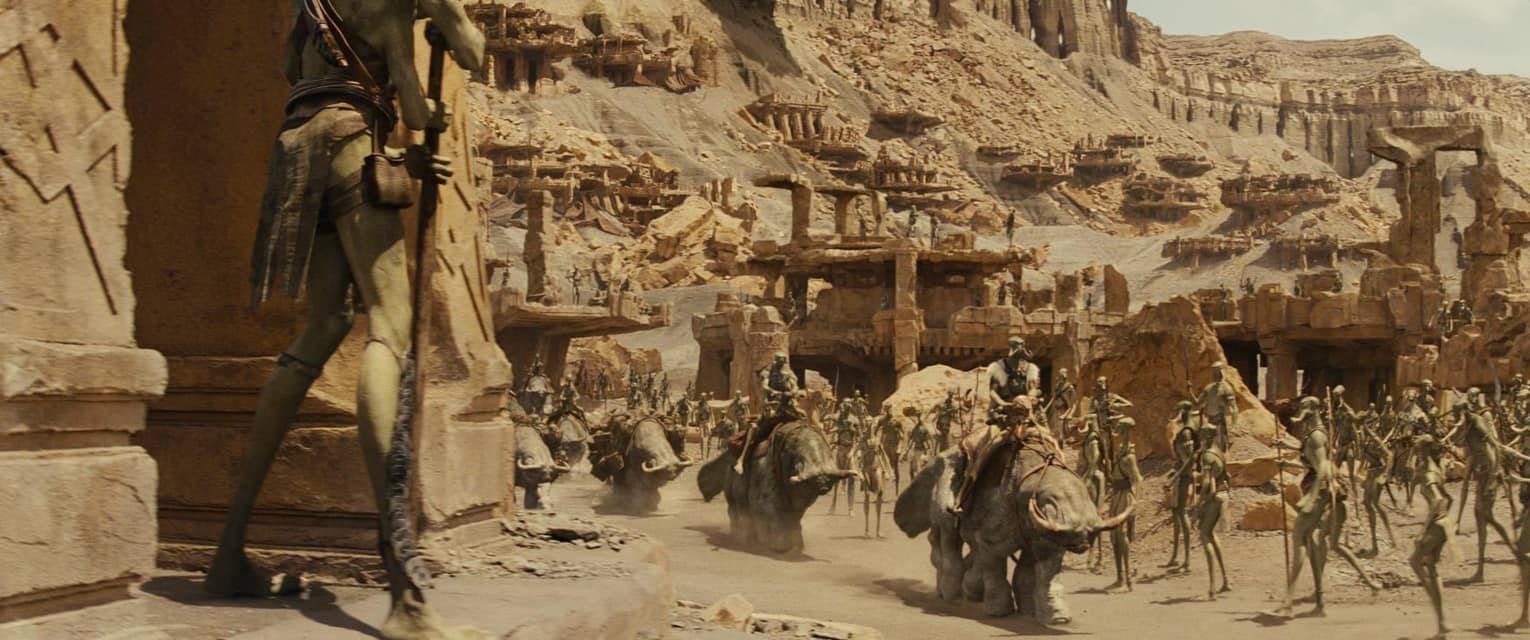John Carter (2012)

“John Carter” (2012), directed by Andrew Stanton, is a science fiction action-adventure film based on Edgar Rice Burroughs’ classic 1912 novel “A Princess of Mars.” The movie aims to bring the epic story of John Carter and the planet Barsoom (Mars) to life with a mix of stunning visuals, adventurous spirit, and a rich narrative. Despite its ambition and lavish production, “John Carter” received mixed reviews and underperformed at the box office, but it has since gained a cult following for its imaginative world-building and epic scope.
The film follows the story of John Carter (Taylor Kitsch), a disillusioned Civil War veteran who is mysteriously transported to Mars. On Mars, he discovers he has enhanced strength and agility due to the planet’s lower gravity. He soon becomes embroiled in a conflict between the planet’s various factions and races. These include the towering, four-armed Tharks led by Tars Tarkas (Willem Dafoe) and the humanoid cities of Helium and Zodanga, which are at war with each other.

John Carter’s journey is both a personal quest and an epic adventure. He meets Dejah Thoris (Lynn Collins), the Princess of Helium, who is a warrior and scientist trying to save her city from the oppressive rule of the Zodangan leader, Sab Than (Dominic West). Dejah and Carter’s relationship evolves from mutual distrust to respect and love as they join forces to save Helium and bring peace to Barsoom.
The film’s visual effects and production design are among its most praised elements. The depiction of Mars (Barsoom) is vibrant and detailed, with vast desert landscapes, ancient cities, and diverse alien species. The Tharks, in particular, are brought to life through impressive CGI and motion capture performances, making them believable and expressive characters.

Taylor Kitsch delivers a solid performance as John Carter, capturing both the character’s ruggedness and his sense of honor. Lynn Collins’ portrayal of Dejah Thoris adds depth to the character, making her a strong and intelligent heroine. Willem Dafoe’s voice performance as Tars Tarkas brings warmth and complexity to the Thark leader.
Andrew Stanton, known for his work on animated films like “Finding Nemo” and “WALL-E,” makes his live-action directorial debut with “John Carter.” His vision for the film is ambitious, aiming to honor the source material while making it accessible to modern audiences. The screenplay, co-written by Stanton, Mark Andrews, and Michael Chabon, strives to balance the film’s epic scale with character-driven moments.

Despite its strengths, “John Carter” faced several challenges. Its marketing campaign was widely criticized for being vague and ineffective, failing to convey the film’s unique appeal. Additionally, the film’s significant budget, reported to be around $250 million, placed immense pressure on its box office performance. While it grossed approximately $284 million worldwide, it was considered a financial disappointment given its high production and marketing costs.
Critics were divided on “John Carter.” Some praised its visual spectacle, adventurous spirit, and faithfulness to Burroughs’ original work, while others criticized its pacing, complexity, and perceived lack of originality. The film’s influences on the sci-fi genre are apparent, as Burroughs’ work inspired many iconic franchises, leading some to view “John Carter” as derivative despite its historical significance.

In retrospect, “John Carter” is appreciated by many fans for its imaginative world, compelling characters, and epic storytelling. It serves as a reminder of the challenges and rewards of adapting classic literature to modern cinema. The film’s cult following continues to celebrate its unique qualities and the rich universe of Barsoom that Edgar Rice Burroughs created over a century ago.
Overall, “John Carter” is a film that embodies both the triumphs and pitfalls of ambitious filmmaking. Its visual splendor, heartfelt performances, and epic narrative make it a noteworthy entry in the science fiction genre, deserving of reevaluation and appreciation.
